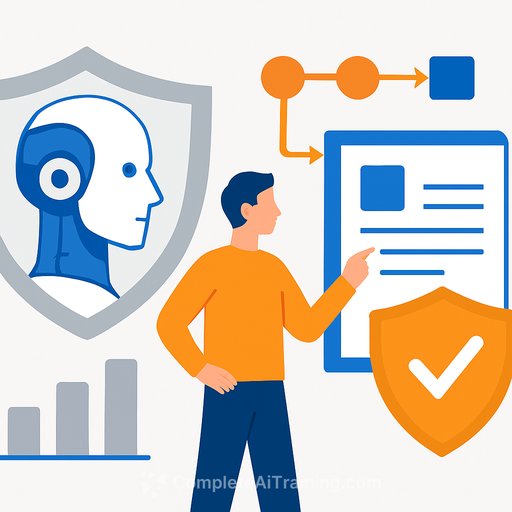Liberate raises $50M to scale AI agents across P&C sales, service, and claims
Liberate, an AI startup automating insurance operations, closed a $50 million all-equity Series B led by Battery Ventures. The round values the three-year-old company at $300 million post-money, with participation from Canapi Ventures and returning investors Redpoint Ventures, Eclipse, and Commerce Ventures.
The timing is practical. Non-life premium growth is expected to slow through 2026 as competition tightens and costs rise, according to a recent Deloitte outlook. Many carriers are rethinking operating models as they push for margin and speed at scale. Source: Deloitte Insurance Outlook
From pilots to production
Early AI experiments often stalled due to fragmented data and rigid workflows. Insurers are now embedding AI into core systems, not just adding chat layers. Liberate is building for that reality with agentic deployments that complete work end to end.
What the product does
At the front end, a voice assistant named Nicole handles inbound and outbound calls for quotes, service requests, and claims intake. Behind it, reasoning-based AI agents plug into policy, billing, and claims systems, fetch context, and execute updates without human intervention.
These agents complete full tasks: quoting, processing claims, updating endorsements, and more. They also operate over SMS and email to support true omnichannel workflows and 24/7 availability.
Built for insurance-grade oversight
The system uses reinforcement learning tuned for long, regulated conversations. Every interaction is auditable, with human-in-the-loop safeguards for compliance.
An internal tool called Supervisor monitors agent-customer interactions, flags anomalies, and escalates to a human when needed. The narrow focus-P&C sales, service, and claims-allows tighter guardrails.
Impact so far
- Scaled from 10,000 monthly automations to 1.3 million automated resolutions over the past year.
- Reported results: average sales lift of 15% and a 23% cost reduction.
- 60+ customers, with a focus on the top 100 carriers and agencies that account for 70%-80% of U.S. P&C volume.
- Hurricane claim response time reduced from 30 hours to 30 seconds in one deployment.
- Always-on sales operations so customers can bind policies outside standard business hours.
Team and investors
CEO Amrish Singh co-founded Liberate after nearly four years at Metromile and leads the company with VP of Engineering Ryan Eldridge (ex-Metromile) and CPO Jason St. Pierre (ex-Twitter, Google, Verily). "Insurance companies want to grow, but they're not able to do so. It's the status quo where the opportunity is," Singh said.
Battery Ventures general partner Marcus Ryu-formerly of Guidewire Software-is joining the board. His take: the edge is in completing the task, not just communicating, and in mapping, modeling, and testing system connections to ensure work gets done end to end.
What the funding enables
The Series B will expand the platform's reasoning capabilities and broaden deployments across insurers. Liberate has raised $72 million to date and employs roughly 50 people.
What carriers and agencies should do next
- Prioritize 2-3 high-volume processes (e.g., quoting, FNOL, endorsements). Capture baseline metrics: handle time, abandonment, leakage, and SLA adherence.
- Demand deep integration. Confirm read/write access to core systems (policy, billing, claims), data quality checks, and full audit trails.
- Set clear risk controls: escalation thresholds, exception handling, PII/PHI safeguards, and TCPA compliance for outbound.
- Run a focused 30-60 day pilot by line and segment. Track conversion, AHT, CSAT, time-to-first-contact, straight-through rates, and loss adjustment expense.
- Plan workforce shifts. Reassign reps to complex cases and retention work. Train staff for exception handling and QA of AI-assisted interactions.
- Establish governance: change management for prompts and models, red-teaming, and weekly variance reviews on outcomes and compliance.
Bottom line
Agent-based automation is moving from experiments to production. For insurers, the upside is clear: faster cycle times, lower cost per transaction, and capacity that scales on demand-without ripping out core systems.
If your team is building skills for AI in operations, explore role-based learning paths here: AI courses by job or a focused credential: AI Automation Certification.
Your membership also unlocks:





